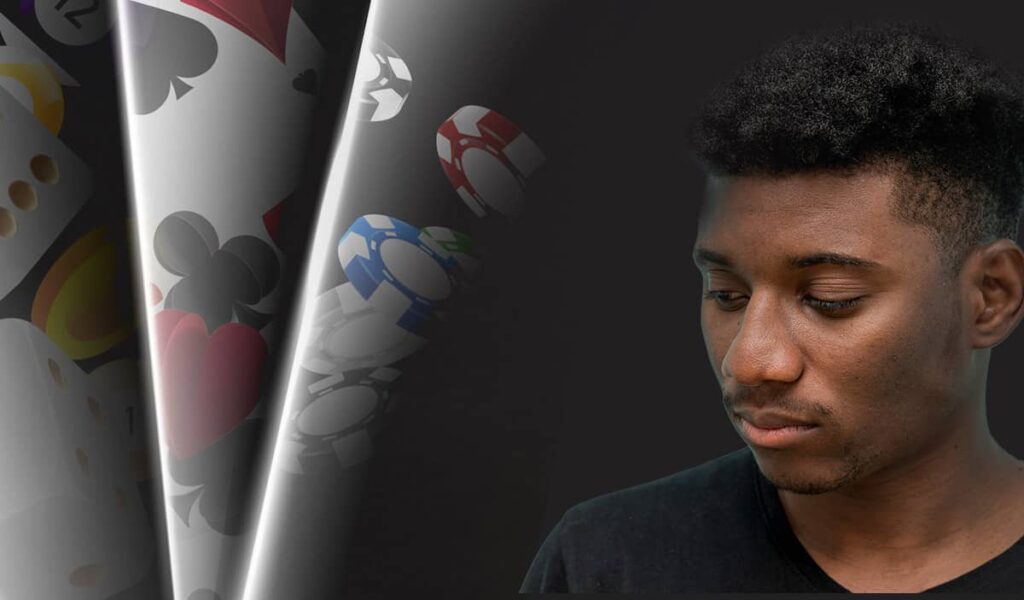While gambling is a popular activity for people from all cultural backgrounds, higher rates of problematic gambling have been reported in certain racial-ethnic minority groups.
This Black History Month, we are shining the spotlight on gambling behavior and the risk of experiencing associated harm among African Americans.
Prevalence of gambling in the African American community
Gambling and gambling-related problems are common with all racial and ethnic groups in the US. However, there is evidence that people from the African American community are more likely to experience gambling-related harms compared to White Americans. Results of a large, nationally-representative study in 2009 found that Black respondents had twice the rate (2.2%) of disordered gambling compared to White respondents. Other studies give more detailed insights:
Links with mood disorders and substance use disorders
A 2011 study by Barry et al compared a nationally-representative sample of 32,316 Black and White adults in the US on measures of gambling behavior, problem gambling, mental health, and the co-occurrence of mental disorders and gambling. It found:
- Black respondents were more likely than White respondents to have exhibited problem gambling behaviors in the last year.
- Higher proportion of Black problem gamblers, compared with White problem gamblers, were women (49% versus 32%).
- Heightened rates of anxiety, mood and substance use and personality disorders among both Black and White problem gamblers. However, Black respondents were more likely than White respondents to have a stronger relationship with subsyndromal gambling, mood disorders and substance use disorders.
Percentage of high-frequency and high-risk gamblers
A 2017 report by Nower and colleagues into “The Prevalence of Online and Land‐Based Gambling in New Jersey” found that Black or African American respondents were less likely to be high-frequency gamblers than Hispanic and Asian/Other respondents but more likely than White or Caucasian respondents. It also found that Black or African American respondents were less likely to be problematic gamblers than Asian/Other respondents but more likely than White or Caucasian, or Hispanic respondents:
- 71% of White or Caucasian, 69% of Hispanic, 68.6% of Black or African American and 64.6 of Asian/Other respondents, reported gambling in the last 12 months.
- 47.2% of Hispanic, 41.2% of Asian/Other, 39.9% of Black or African American and 36.8% of White or Caucasian respondents were high-frequency gamblers (respondents who gambled once a week or more in the last 12 months).
- Black or African American respondents reported the second highest prevalence of problem gambling (compared with other racial/ethnic groups) with 18.5% having low-risk problems, 10.4% experiencing moderate-risk problems and 10.7% suffering from high-risk problems. Asian/Other respondents displayed the most problematic gambling behaviors and White or Caucasian respondents the least.
Differences in impulsivity and compulsivity
A 2020 study by Chamberlain and Grant looked at “Racial-ethnic differences in impulsivity and compulsivity in recreational gambling” among 202 recreational gamblers. It found:
- African Americans showed significantly more subsyndromal symptoms of gambling disorder compared to White Caucasians.
- No big differences between African Americans, White Caucasians and Asians on measures of impulsivity, but marked differences between racial-ethnic groups for measures of compulsivity.
- Compared to the White Caucasian group, the African American group showed higher decision-making decrements on the gambling task.
The report concludes that African American gamblers appear to experience greater levels of subsyndromal gambling compared to other racial-ethnic groups, and this seems to be linked with aspects of compulsivity.
8 barriers to mental health treatment for African Americans

People who gamble compulsively often have co-existing mental health issues such as stress, anxiety and depression. Gambling disorder may also be associated with other problems, including obsessive-compulsive disorder (OCD), attention-deficit hyperactivity disorder (ADHD) and substance use disorder. According to the American Psychiatric Association, only one in three African Americans who need mental health care receives it. There are a number of barriers that make it harder for this racial-ethnic group to receive professional treatment for gambling disorder and any associated mental health issues:
Cost of treatment
According to the American Psychiatric Association, approximately 11% of African Americans are not covered by health insurance and paying for therapy is often not an option. Even those who are insured often do not have mental health cover or have expensive co-pays or deductibles.
Distrust of the health care system
Many African American people distrust the health care system due to a history of being mistreated, misdiagnosed and given poor quality care. This distrust extends to mental health services and is often a barrier to requesting and receiving appropriate treatment.
Cultural stigma
There is often a cultural stigma surrounding mental health in the African American community. Seeking therapy is seen as a sign of weakness. Those who need support may turn to friends, family or the church for advice but professional help is likely to have better therapeutic outcomes.
Familial shame
Mental health treatment can be shunned by African Americans who value family privacy and perceive therapy as something to be ashamed of. However, the idea that seeking therapy is a sign of a dysfunctional family is very dated.
Lack of culturally competent providers
Only 4.1% of therapists and 4% of psychologists are black and not all therapists are aware of how culture, race and ethnicity impact a person’s mental health and well-being. Understanding cultural humility enables mental health practitioners to meaningfully engage with clients and their cultural identities, for better therapeutic outcomes. Find out more by reading our Cultural Humility, Gambling Disorders and Gaming blog.
Lack of psychiatrists from diverse backgrounds
According to a 2020 study published in “Academic Psychiatry,” only 10.4% of practitioners come from minority groups – who now make up nearly 33% of the US population. The study found that in 2013, Black Americans were only 4.4% of practicing psychiatrists.
Physician-patient communication
A 2004 study into “Patient race/ethnicity and quality of patient-physician communication during medical visits” found that physicians were 23% more verbally dominant and engaged in 33% less patient-centered communication with African American patients than White patients.
Negative experiences
If someone has received treatment in the past and the experience was not great – due to the therapist’s lack of cultural humility or other race-related factors – they are less likely to find a new counselor and continue their journey to recovery.
Where to get culturally sensitive therapy
This Black History Month, we’re highlighting the need for widespread access to culturally sensitive therapy for people with gambling disorder and/or mental health problems.
At Kindbridge, we actively recruit people who identify as being members of ethnically diverse cultures. By welcoming clients who also identify as members of these communities, we aim to increase access to better mental health care for all.
Our fully licensed therapists are specialists in treating people with gambling disorder and a wide range of other mental health problems. They can provide high-quality online counseling and virtual behavioral health services wherever you are to address your problematic behavior and support your mental health and well-being.
If you want to know how to get help for a gambling issue as an African American, take our gambling disorder test then get in touch to book your free and confidential 30-minute consultation.

